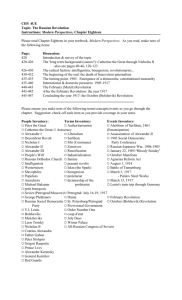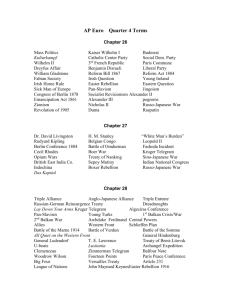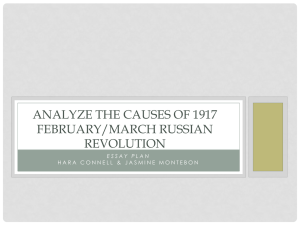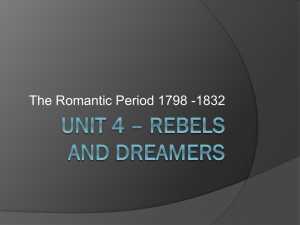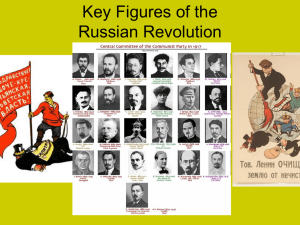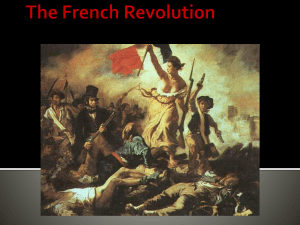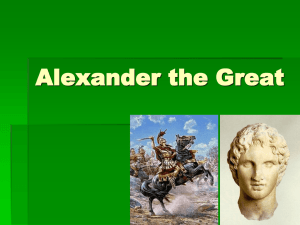How the rulers of Russia dealt with opposition 1855 – 1964.
advertisement
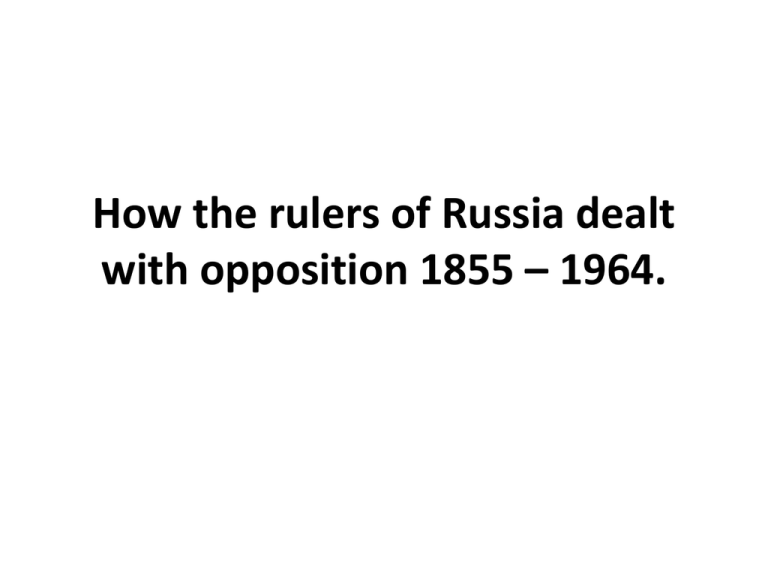
How the rulers of Russia dealt with opposition 1855 – 1964. Alexander II 1856-1881 Methods Tried to ‘reform from above to prevent revolution from below’. e.g. emancipation, zemstva, trial by jury Evaluation Many of his reforms were flawed They certainly failed to popularise his regime From the mid-60s opposition flourished e.g. Narodniks, Land & Liberty, Peoples’ Will After a failed assassination attempt in 1866 Alexander II reverted to more reactionary methods but proved an ‘inefficient liberal and an ineffective autocrat’ Assassinated by the Peoples’ Will in 1881 Alexander III 1881-1894 Methods With Pobedonostev re-imposed authoritarian rule – his reactionary policies are usually known as ‘the Reaction’ Land Captains, the Okhrana Evaluation Apart from a failed assassination attempt in 1887, opposition was driven underground or abroad; it is possible to argue that Alexander III dealt with opposition very effectively – that he restored the authority of the Romanov dynasty. However it is also possible to criticise him; he turned away from reform and his reign, which included the famine of 1891 and the start of the rapid expansion of urban slums under Witte’s ‘Great Spurt’, set the dynasty on collision course with revolution. As Trotsky commented: ‘Alexander III bequeathed Nicholas II a revolution’. Nicholas II 1894-1917 Methods With Pobedonostev attempted to ‘rule like my great unforgettable father’ Condemned plans for a constitution as ‘senseless dreams’ Was forced into reforming as a consequence of the 1905 Revolution Evaluation Lacked his father’s ability; a weak personality; increasingly prone to mistakes; poor judgement In early years of his reign rapid growth of opposition groups: SDs (Bolsheviks/Mensheviks), SRs, Cadets By 1905 failure to achieve a ‘short victorious war’ against Japan and the horror of ‘Bloody Sunday’ saw Russia spiral into revolution By Feb 1917, abandoned by the elites, he was forced to abdicate and the dynasty ended Kerensky & the PG 1917 Methods Planned to rule temporarily until democratic elections to a Constituent Assembly could be organised Evaluation Misjudged the popular mood, continuing to fight in the First World War and hesitating to give out the nobles’ land to the peasants By October when Kerensky armed the Bolshevik Red Guards to defend Petrograd from Kornilov’s failed coup the game was up Easily overthrown by Lenin’s Bolsheviks in October Lenin 1917 - 1924 Methods Introduced immediate reforms – Decree on Land, Decree on War Used ‘Red Terror’ through the Cheka and the Red Army in order to defeat the forces of counter-revolution in the Civil War 1918-20 Crushed the Kronstadt Revolt of 1921 ruthlessly, but then reformed by abandoning War Communism for the NEP Evaluation Massive achievement to first seize power in October 1917 and then to defeat the Whites Showed he could use the most brutal methods to defend his revolution Historians argue as to whether he was so dictatorial because of circumstance or by natural preference Introduction of NEP in 1921 suggests he was prepared to change course if circumstance (famine e.t.c.) demanded it Stalin 1924+ - 1953 Methods Ruthless in his acquisition and accumulation of power Paranoid about possible opponents; a latter-day Ivan the Terrible Terror, purges, Show Trials, gulags, de-kulakisation Evaluation Ruled supreme having rid himself of all possible rivals (and countless others by 1940) Certainly possible to argue that he was coldly efficient in dealing with opponents, but it is also possible to argue that his fixation with getting his retaliation in first against real or imagined opponents led to much unnecessary and gratuitous brutality. Khrushchev 1954+ - 1964 Methods Attempted to reform – destalinisation and ‘the Thaw’ In his secret speech of 1956 admitted that under Stalin the Soviet peoples ‘came to fear their own shadows’ Evaluation As with Alexander II 100 years earlier (and as with Gorbachev in the 1980s) , Khrushchev proves that reforming a monolithic, backwards and huge Russian Empire is a difficult act. In 1964 he was told to resign and retired (unique amongst the rulers of the Soviet Union)
